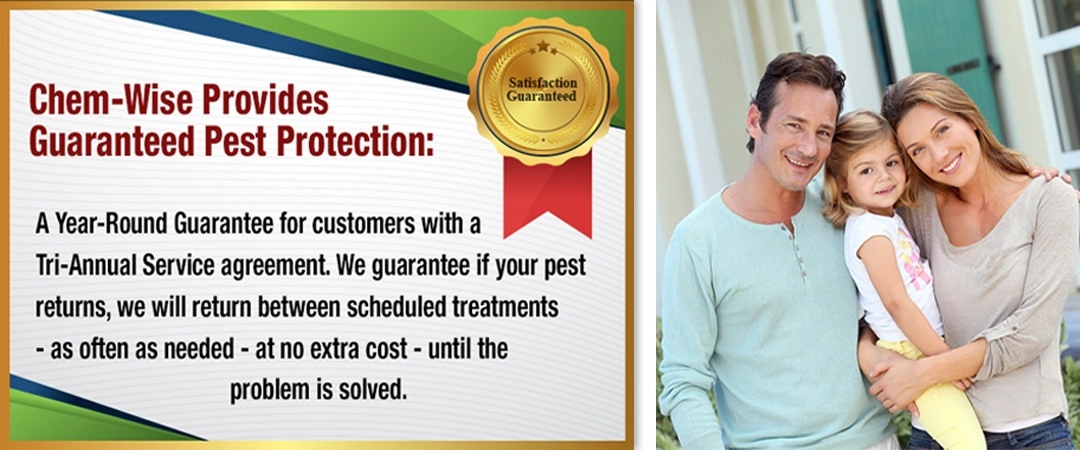How To Choose a Pest Control Company
When selecting a pest control professional, there are several factors you can consider to be sure that you're choosing the best one for you. The qualifications of and treatment methods used by a company are important to consider, as well as its years of experience and what other customers have said. Of course, you also want to consider cost.
Below, we discuss each of these factors in more detail.
Does the company have a valid license and permits to perform pest control?
The United States Environmental Protection Agency (EPA) sets minimum standards of competency for pesticide applicators, but licensure is taken care of at the state level. All pesticide applicators and their supervisors in Illinois need to be licensed through the proper state regulatory agencies.
Is the company a member of any professional organizations?
Pest control companies can also obtain optional certifications such as the GreenPro Service Certification. This certification is granted once a company has shown that its treatment methods are more eco-friendly and demonstrated that it also maintains certain other standards, such as up-to-date training for employees. A pest control company can also earn other certifications from trade organizations like QualityPro to further back up its practices and methods.
There are several professional organizations that pest control companies can be members of. When a company becomes a member of an organization like the National Pest Management Association(NPMA) (or a state-level organization), it gains access to education, resources, and a network of other pest experts with whom to compare methods. This can give you extra peace of mind that a company is following industry best practices.
Professional Experience and Specialties
For the most part, a company provides information like its years of experience and specialities on its website. Local reviews can also inform you as to whether a company has experience dealing with a particular pest in your area. If you're unable to find the information you need online, you can call the company directly to get the answers to your questions.
Reviews and Recommendations
You can look up a company's Better Business Bureau (BBB) rating, browse reviews on local review sites or social media, or check the standing of its license via the Illinois licensing board.
Cost of Services and Guarantees
The cost of pest control can vary based on things like your location, the size of your house, the type of pest being treated, and other factors.
When thinking about the cost of services, you should confirm whether a company includes free on-site estimates as part of its services. This can inform you whether the company fits into your budget. Also take into account a company's guarantees: If the problem is not fixed, or returns, does the company promise to offer additional treatment until the problem is resolved satisfactorily?
Safety and Treatment Methods
Your choice of pest control provider might be influenced by how environmentally friendly a provider's pest control management solutionsare, in addition to how safe its methods are around your family and pets.
Safety
Your pest control expert should be able to explain the safety precautions of any pesticides they plan to use. They should be able to explain whether the pesticides are low toxicity or non-toxic, and if not what safety precautions they will put in place to protect your family, your pets, and you. All pesticides that pose greater than a minimum risk need to be registered with the EPA.
Treatment Methods
Organizations looking to reduce their reliance on chemical pesticides often follow practices such as Integrated Pest Management (IPM). Using IPM involves a series of steps:
- Figure out what pests are causing the problem and determine whether immediate action is required.
- Determine the best and safest course of action.
- Manage the pest problem using a combination of biological, cultural, physical, and mechanical controls.
- Use chemical controls only when required, and always in combination with other methods for effective long-term pest management.
- Evaluate outcomes and implement additional pest control as needed.
















